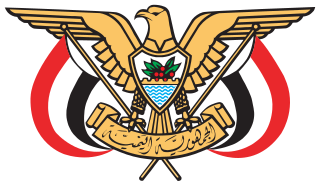The Liberal Party of Cuba, was one of the major political parties in Cuba from 1910 until the Cuban Revolution in the late 1950s, when it was exiled.

The National Alliance for Reconstruction (NAR) was the governing party in Trinidad and Tobago between 1986 and 1991. The party has been inactive since 2005.

Early general elections were held in Trinidad and Tobago on 7 October 2002, after People's National Movement leader Patrick Manning had failed to secure a majority in the hung parliament produced by the 2001 elections. This time the PNM was able to secure a majority, winning 20 of the 36 seats. Voter turnout was 69.6%.
Early general elections were held in Trinidad and Tobago on 6 November 1995, after the ruling People's National Movement had seen its majority reduced to a single seat due to a defection and a lost by-election. The results saw the PNM and the United National Congress both win 17 seats. Although they had received fewer votes, the UNC was able to form a coalition with the two-seat National Alliance for Reconstruction, allowing UNC leader Basdeo Panday to become the country's first Prime Minister of Indian descent. Voter turnout was 63.3%.
Federal elections were held in Switzerland on 25 October 1931. Although the Social Democratic Party received the most votes, the Free Democratic Party remained the largest party in the National Council, winning 52 of the 187 seats.
Federal elections were held in Switzerland on 23 October 1983. The Free Democratic Party emerged as the largest party in the National Council, winning 54 of the 200 seats. It was the first time the Social Democratic Party had not received the most votes in a federal election since 1925.
Federal elections were held in Switzerland on 29 October 1967. The Social Democratic Party remained the largest party in the National Council, winning 50 of the 200 seats.
Federal elections were held in Switzerland on 25 October 1959. The Social Democratic Party and the Free Democratic Party emerged as the largest parties in the National Council, each winning 51 of the 196 seats.
Federal elections were held in Switzerland on 30 October 1955. The Social Democratic Party emerged as the largest party in the National Council, winning 53 of the 196 seats.

General elections were held in Portugal on 28 April 1918, following a coup by Sidónio Pais in December 1917. The elections were boycotted by the Democratic Party, the Evolutionist Party and the Republican Union, who had won over 90% of the seats in the 1915 elections.

Parliamentary elections were held in Portugal on 16 December 1934, the first following the establishment of the one-party state known as the Estado Novo. The National Union was the only party to contest the elections, and no opposition candidates were allowed to run. It subsequently won all seats in the National Assembly, three of which were taken by women.
Federal elections were held in Switzerland on 29 October 1922. The Free Democratic Party remained the largest party in the National Council, winning 60 of the 198 seats.
Federal elections were held in Switzerland on 25 October 1925. The Free Democratic Party remained the largest party in the National Council, winning 60 of the 198 seats.
Federal elections were held in Switzerland on 27 October 1935. The Social Democratic Party emerged as the largest party in the National Council, winning 50 of the 187 seats.
Federal elections were held in Switzerland on 29 October 1939. The Free Democratic Party emerged as the largest party in the National Council, winning 49 of the 187 seats. Due to the outbreak of World War II, there were no elections in nine of the 25 cantons; Appenzell Ausserrhoden, Lucerne, Neuchâtel, Schwyz, Solothurn, Ticino, Valais, Vaud and Zug. In what became known as "silent elections", a total of 55 candidates were elected unopposed.

General elections were held in Uruguay on 24 November 1946, alongside a constitutional referendum. The result was a victory for the Colorado Party, which won the most seats in the Chamber of Deputies and received the most votes in the presidential election, in which Tomás Berreta was elected. Berreta subsequently became President on 1 March 1947.

Elections to the French National Assembly were held in French Somaliland on 21 October 1945, with a second round on 4 November as part of the wider parliamentary elections. René Bernard-Cothier was elected as the territory's MP.

Elections to the French National Assembly were held in French Somaliland on 2 June 1946, with a second round on 16 June as part of the wider parliamentary elections. René Bernard-Cothier was re-elected as the territory's MP.

The Democratic Nasserist Party is a political party in Yemen.








